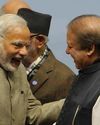All doctrines require regular reappraisals and the Indian nuclear doctrine will inevitably have to respond to contemporary challenges.

AN INTERESTING DEBATE is taking place in India on the future of its nuclear doctrine. A number of factors have added a new sense of urgency to this debate—a centre-right government in New Delhi that is not shy of dramatically recalibrating Indian foreign and security policy, growing concern among Indian strategic thinkers that Pakistan’s reliance on tactical nuclear weapons as well as the Pakistan China collusion is rapidly closing India’s room for manoeuvrability and an ongoing power transition in the Indo-Pacific whereby the Trump Administration is indicating that it may not be averse to new nuclear powers emerging in Asia.
Though the Modi government has so far not proposed any change in the doctrine or the No First Use (NFU) policy on which India’s declaratory nuclear doctrine is based, it had promised in its 2014 election manifesto to “study in detail India’s nuclear doctrine, and revise and update it, to make it relevant to challenges of current times.” Manohar Parrikar, who till a month back was India’s Defence Minister, has questioned the NFU policy on nuclear weapons, asking, “Why a lot of people say that India has No First Use policy... I should say I am a responsible nuclear power and I will not use it irresponsibly... And as an individual, I get a feeling sometime why do I say that I am not going to use it first. I am not saying that you have to use it first just because you don’t decide that you don’t use it first. The hoax can be called off.”
This story is from the May 2017 edition of Swarajya Mag.
Start your 7-day Magzter GOLD free trial to access thousands of curated premium stories, and 9,000+ magazines and newspapers.
Already a subscriber ? Sign In
This story is from the May 2017 edition of Swarajya Mag.
Start your 7-day Magzter GOLD free trial to access thousands of curated premium stories, and 9,000+ magazines and newspapers.
Already a subscriber? Sign In

Refuging Progess
There is a well-orchestrated global conspiracy to deny scientific and technological developments from the West to Third World countries.

The Monk Of Science
Vivekananda believed that Religion should be subjected to scientific methods of investigation. The third and concluding part of our series on the Swami and his views on science.
The Next Step
Indian technical manpower can be trained for high-value-added emerging services in the era of mass commoditisation of hardware.
The Threat Of Autarchy
The force of globalisation is an irreversible reality, and it is countries like India and China that will nurture it going forward.

Neanderthals: The Womb Of Caves
Recent discoveries indicate that Neanderthals may have had a rich inner life, including symbolic thought. Indeed, they may have been the progenitors of human religions.

Getting India's World Right
Incremental concessions will get India nowhere with Pakistan and China. What we need is a classically conservative foreign policy, based on realism.

The Hesitant Orbit
In order to march boldly ahead into the deep space, New Delhi must work towards building a station, boost its techno-economic planning and use the Indian Space Research Organisation smartly.

Nudges And Narratives
The debate surrounding Sanjay Leela Bhansali’s Padmavati brings India a complex network of portraits within a cultural world-system.

The Spell Of Specialisation
THE INDIAN ADMINISTRATIVE SERVICE NEEDS AN URGENT REJIG. THE KEY TO SPEED AND EFFICIENCY LIES IN PUTTING AN END TO A GENERALIST APPROACH AND IN GOING FOR A NEW SERVICE.
The Great Gamble
With demonetisation, the prime minister has taken a huge risk— both economic and political. He must succeed, because this move could transform both our economy and our society.